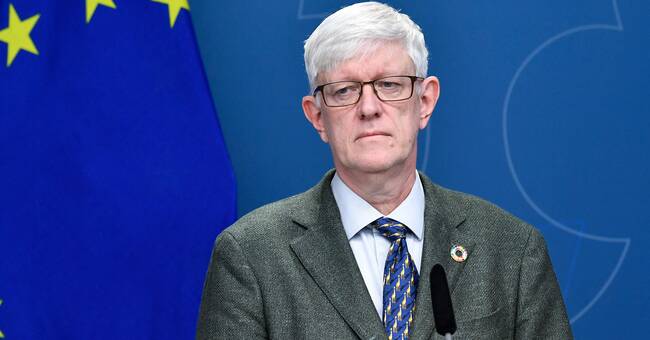More than a quarter of a million Swedes have now received at least one vaccine dose.
In February and March, an additional 2.2 million doses are expected to be delivered to Sweden.
More are included in phase two
The Swedish Public Health Agency has divided the upcoming vaccinations into four phases and updated the recommendations regarding these.
Phase one includes, as before, people in special housing for the elderly as well as people with home care, their household contacts and care and nursing staff.
However, more people are included in what is called phase two.
This now includes everyone over the age of 65, previously the limit was 70 years.
Phase two also includes people with certain medical conditions, such as dialysis and transplant recipients, as well as their household contacts.
Two million in phase three
Phase three comes next and covers a total of almost two million people.
This now includes 60-64-year-olds, and people who are 18 years and older with underlying diseases or conditions that increase the risk of severe disease in covid-19.
This is also a change from before.
Phase three also includes people who may have difficulty following recommendations.
This includes, for example, people with dementia, people with Down syndrome and the homeless.
The fourth and final phase includes others between the ages of 18 and 59.
Socio-economic factors
Common to all phases is that the oldest are given priority over the younger ones and those who are more at risk take precedence over those who are less at risk, explains Johan Carlsson, Director General of the Swedish Public Health Agency.
- In each phase, it also applies that those who have other risk factors than the purely medical ones need to be given priority, he says and continues:
- There is a need to take into account socio-economic factors such as the link to ethnicity, educational levels, overcrowding, population density in residential areas and the conditions to absorb and follow recommendations that protect against infection when planning for vaccination campaigns.
May change again
The new recommendations are not set in stone and may change, says Johan Carlsson.
- The forecasts are changing, which means that the recommendation for priorities we present today may change again, as access to vaccines is crucial for vaccination work.

